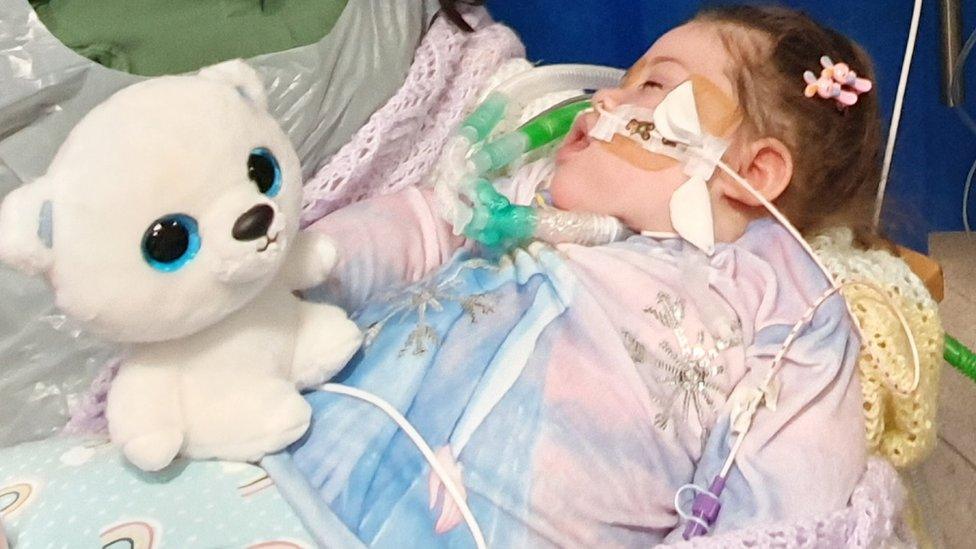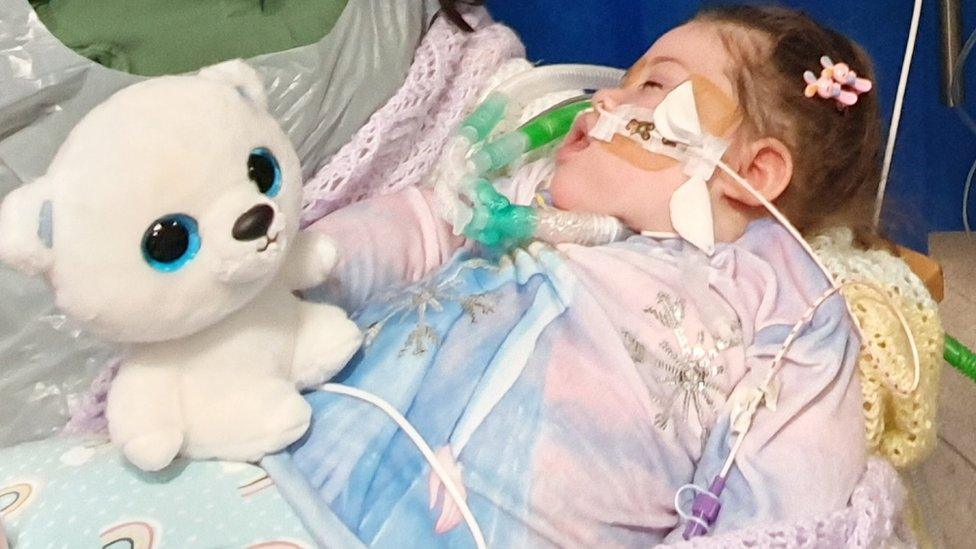Alta Fixsler should be allowed home for last moments of life, parents say
- Published

Alta Fixsler suffered a brain injury at birth and cannot breathe, drink or eat without medical help
A seriously-ill girl at the centre of a legal row over her care should be allowed home for the "last moments of her life", her father has said.
A judge has ruled it would not be in two-year-old Alta Fixsler's "best interests" for Manchester University NHS Foundation Trust to continue life-sustaining treatment.
Her father said her family's "last wishes" were to bring the toddler home.
The trust said it would "continue to support" Alta and her family.
Alta's father, who cannot be named for legal reasons, told BBC Radio 4's Today programme that his daughter's life support would be withdrawn in the coming days.
He said her subsequent death "could take minutes, hours, days, weeks and even months" and as such, the family wanted those caring for her to "give us the last wishes that we want, to be with our child in our comfort zone in our house".
He said taking her home was "something that we wanted from day one when the doctors said she is not going to live more than a few hours".
"This is what my wife asked and this is what out wishes are," he added.
"Alta should be home."
'Difficult and distressing'
Alta suffered a brain injury at birth and cannot breathe, drink or eat without medical help.
The trust and other medical experts have said she has no chance of recovery, but her parents, who are Hasidic Jews, had argued that removing life-sustaining care was against their faith and their rights as parents.
They asked the High Court for permission to take her to an Israeli hospital or to the US, where she has been granted a visa because of her father's US citizenship.
However, a judge ruled that it was in Alta's "best interests" to withdraw treatment and taking her abroad would expose her to "further pain".
That ruling was later upheld by the European Court of Human Rights.
Alta's father told BBC North West Tonight that he and his wife had fought the court ruling because "we believe disabled people still have the right to live".
"It is not her fault this is how she is," he said.
"Disabled people do not deserve to die."
The toddler's mother added that she was "not happy" with the ruling, which was "not what I want".
The trust said it recognised that it was "an incredibly difficult and distressing time for Alta's family and we will continue to support them", adding: "Due to patient confidentiality, we are unable to comment further."

Why not follow BBC North West on Facebook, external, Twitter, external and Instagram, external? You can also send story ideas to northwest.newsonline@bbc.co.uk
Related topics
- Published4 August 2021

- Published28 July 2021

- Published9 June 2021

- Published28 May 2021

- Published20 May 2021

- Published19 May 2021
